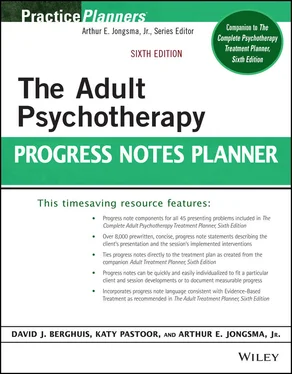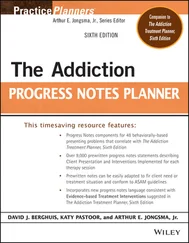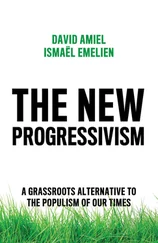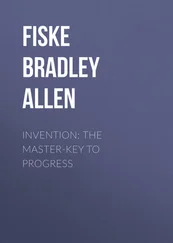31 Select Challenging Situations for Managing Anger (31)The client was provided with situations in which he/she/they may be increasingly challenged to apply his/her/their new strategies for managing anger.The client was asked to identify his/her/their likely upcoming challenging situations for managing anger.The client was urged to use his/her/their strategies for managing anger in successively more difficult situations.
32 Consolidate Anger Management Skills (32)Techniques were used to help the client consolidate his/her/their new anger management skills.Techniques such as relaxation, imagery, behavioral rehearsal, modeling, role-playing, or in vivo exposure/behavioral experiences were used to help the client consolidate the use of his/her/their new anger management skills.The client's use of techniques to consolidate his/her/their anger management skills were reviewed and reinforced.
33 Monitor/Decrease Episodes (33)The client's reports of angry episodes were monitored, toward the goal of decreasing their frequency, intensity, and duration.The client was urged to use his/her/their new anger management skills to decrease the frequency, intensity, and duration of his/her/their anger episodes.The client was assigned “Alternatives to Destructive Anger” in the Adult Psychotherapy Homework Planner (Jongsma).The client's progress in decreasing his/her/their angry episodes was reviewed.The client was reinforced for his/her/their success at decreasing the frequency, intensity, and duration of his/her/their anger episodes.The client has not decreased his/her/their frequency, intensity, or duration of anger episodes, and corrective feedback was provided.
34 Provide Rationale for Relapse Prevention (34)The client was provided with the rationale for relapse prevention.The client was helped to understand that treatment will focus on identifying risks and introducing strategies to prevent the risk situations from continuing on.
35 Differentiate Between Lapse and Relapse (35)A discussion was held with the client regarding the distinction between a lapse and a relapse.A lapse was associated with an initial and reversible return of angry outbursts.A relapse was associated with the decision to return to the old pattern of anger.The client was provided with support and encouragement as he/she/they displayed an understanding of the difference between a lapse and a relapse.The client struggled to understand the difference between a lapse and a relapse and was provided with remedial feedback in this area.
36 Discuss Management of Lapse Risk Situations (36)The client was assisted in identifying future situations or circumstances in which lapses could occur.The session focused on rehearsing the management of future situations or circum- stances in which lapses could occur.The client was reinforced for his/her/their appropriate use of lapse management skills.The client was redirected in regard to his/her/their poor use of lapse management skills.
37 Encourage Routine Use of Strategies (37)The client was instructed to routinely use the strategies that he/she/they have learned in therapy (e.g. calming, adaptive self-talk, assertion, and/or conflict resolution).The client was urged to find ways to build his/her/their new strategies into his/her/their life as much as possible.The client was reinforced as he/she/they reported ways in which he/she/they have incorporated coping strategies into his/her/their life and routine.The client was redirected about ways to incorporate his/her/their new strategies into his/her/their routine and life.
38 Develop a “Coping Card” (38)The client was provided with a “coping card” on which specific coping strategies were listed.The client was assisted in developing his/her/their “coping card” in order to list his/her/their helpful coping strategies.The client was encouraged to use his/her/their “coping card” when struggling with anger-producing situations.
39 Schedule “Maintenance” Sessions (39)The client was assisted in scheduling “maintenance” sessions to help maintain therapeutic gains and adjust to life without anger outbursts.Positive feedback was provided to the client for his/her/their maintenance of therapeutic gains.The client has displayed an increase in anger symptoms and was provided with additional relapse prevention strategies.
40 Teach Forgiveness (40)The client was taught about the process of forgiveness and encouraged to begin to implement this process as a means of letting go of his/her/their feelings of strong anger.The client focused on the perpetrators of pain from the past, and he/she/they were encouraged to target them for forgiveness.The advantages of implementing forgiveness versus holding on to vengeful anger were processed with the client.Positive feedback was provided as the client has committed self to attempting to begin the process of forgiveness with the perpetrators of pain.The client has not been able to begin the process of forgiveness of the perpetrators of his/her/their pain and was urged to start this process as he/she/they feel able to.
41 Assign Books on Forgiveness (41)The client was assigned to read books on forgiveness.The client was assigned to read the book Forgive and Forget (Smedes) to increase his/her/their sensitivity to the process of forgiveness.The client has read the book Forgive and Forget and key concepts were processed within the session.The client acknowledged that holding on to angry feelings has distinct disadvantages over his/her/their beginning the process of forgiveness; he/she/they were urged to start this process.The client has not followed through with completing the reading assignment of Forgive and Forget and was encouraged to do so.
42 Assign Forgiveness Letter (42)The client was asked to write a letter of forgiveness to the target of his/her/their anger as a step toward letting go of that anger.The client has followed through with writing a letter of forgiveness of the perpetrator of pain from his/her/their past, and this was processed within the session.The client has not followed through with writing the forgiveness letter and was noted to be very resistive to letting go of his/her/their feelings of angry revenge.Writing and processing the letter of forgiveness have reduced the client's feelings of anger and increased his/her/their capacity to control its expression.
43 Use ACT Approach (43)The use of acceptance and commitment therapy (ACT) was applied.The client was assisted in accepting and openly experiencing angry thoughts and feelings, without being overly impacted by them.The client was assisted in committing his/her/their time and efforts to activities that are consistent with identified personally meaningful values.The client has engaged well in the ACT approach and applied these concepts to his/her/their symptoms and lifestyle.The client has not engaged well in the ACT approach, and remedial efforts were applied.
44 Assign ACT Homework (44)The client was assigned homework situations in which he/she/they practice lessons from mindfulness meditation and ACT.The client was assisted in consolidating his/her/their mindfulness meditation and ACT approaches into his/her/their everyday life.
45 Assign Reading on Mindfulness and ACT (45)The client was assigned reading material consistent with mindfulness and the ACT approach to supplement work done in session.The client was assigned Get out of Your Mind and into Your Life (Hayes).The client has read assigned material and key concepts were processed.The client has not read assigned material and was redirected to do so.
46 Teach Mindfulness Meditation (46)The client was taught mindfulness meditation techniques to help recognize negative thought processes associated with anger.The client was taught to focus on changing his/her relationship with the anger-related thoughts by accepting the thoughts, images, and impulses that are reality-based while noticing, but not reacting to, non-reality-based mental phenomenon.The client was assisted in differentiating between reality-based thoughts and non-reality-based thoughts.The client has used mindfulness meditation to help overcome negative thought processes that trigger anger and was reinforced for this.The client has struggled to apply mindfulness meditation and was provided with remedial assistance in this area.
Читать дальше












